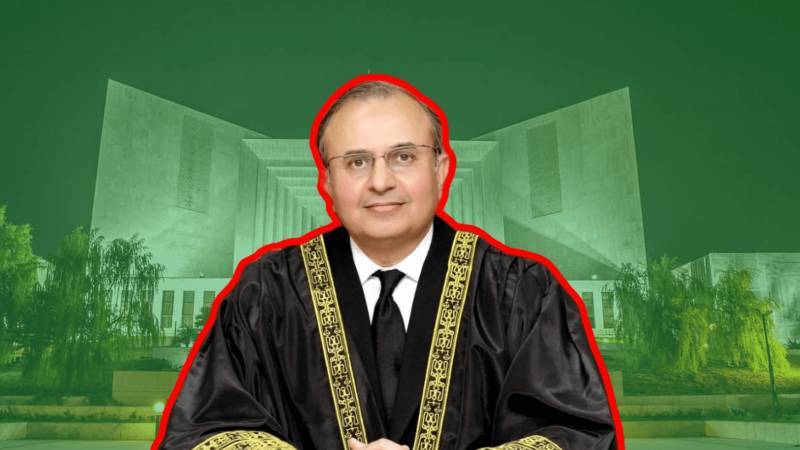
In a major development, Supreme Court's Justice Mansoor Ali Shah has observed that the power to hold individuals or entities in contempt for failing to comply with a court order is fundamental to the judiciary's ability to function effectively.
"Without this power, the judiciary would be rendered toothless, unable to enforce its decisions, thereby jeopardising the administration of justice," observed Justice Shah.
He made these observations while issuing a written order regarding pensioners of the National Bank of Pakistan (NBP).
However, his remarks regarding contempt were perceived to be a hint in the context of the non-implementation of a majority order by eight judges part of a 13-member full court bench of the superior court in the reserved seats case. The order granted major relief to the Pakistan Tehreek-e-Insaf (PTI) by restoring it to the Parliament and awarding it reserved seats.
The Election Commission of Pakistan (ECP) partially implemented the judgment by issuing a notification which declared independent returned candidates as PTI's returned candidates but the Commission sought clarification of the judgment from the eight judges while it seperately filed a review petition. It is pertinent to note here that the eight judges who issued a short order for the majority decision have come under severe criticism for taking too long to issue their detailed verdict, thus making review petitions filed by political parties and the ECP infructuous.
In his written order issued on Friday, Justice Shah further observed that the law of contempt is a critical tool in this context.
"It serves to enforce court orders, ensuring that the judiciary is respected and that its decisions are not taken lightly."
Individuals or entities have no other choice but to implement the court's judgment, for in doing so, they uphold the Constitution, strengthen democracy, and preserve the public's trust in justice and the rule of law, observed Justice Shah.
Additionally, the written order added that implementing these orders is crucial for maintaining public confidence in the judicial system.
"Courts are seen as the defenders of rights, the arbiters of disputes, and the interpreters of laws," he observed, further emphasising that if the courts' decisions can be easily ignored or sidestepped by the individuals or entities, it undermines public trust in the efficacy of the judiciary and, by extension, the entire government.
"This erosion of trust can lead to a lack of faith in the processes that govern citizens' lives and, ultimately, in the democratic system itself."
"The importance of implementing these orders cannot be overstated, and it is imperative that the institutions recognise that it has no other choice but to comply."
It is imperative to underline that in a constitutional democracy, the rule of law is not just a principle but the bedrock upon which the legitimacy of governance rests, stated the written order.
"The Supreme Court of Pakistan, as the apex judicial body, is entrusted with the profound responsibility of interpreting the law, ensuring justice, and upholding the Constitution."
"Its orders are not merely recommendations or advisories; they are legal mandates that must be followed," it said.
"These decisions are the culmination of rigorous legal scrutiny and deliberation intended to reflect the values and laws of the land."
"When this court renders a verdict, it does so as the ultimate interpreter of the Constitution."
"To disregard or delay the implementation of such verdicts is to challenge the very framework of our legal system."
"The compliance with judicial decisions is not a matter of courtesy but a constitutional requirement that safeguards this balance."
"Non-compliance not only disrupts this delicate equilibrium but also sets a dangerous precedent that could lead to executive overreach."
The case regarding NBP pensioners was heard by a three-judge bench headed by Justice Mansoor Ali Shah and comprising Justice Athar Minallah and Justice Malik Shehzad.
Justice Minallah was among the eight judges who formed the majority judgment in favour of the PTI, which was not even a party at any stage of the litigation regarding the reserved seat case.

